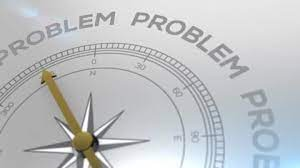
Introduction
The European Union (EU) member states have approved at the European Council on 21 March 2022, “A Strategic Compass for Security and Defence” document.[1] According to the factsheet prepared by the EU External Action Service (EEAS), which carries out the EU’s Common Foreign and Security Policy, The Strategic Compass (SC) provides an analysis of the strategic environment of the EU and seeks to bring greater coherence and a strong shared sense of purpose to the EU’s security and defence efforts.[2] To this end, it is stated that the adoption of the SC is a strong sign of unity, that the EU Member States have for the first time agreed on a shared vision with detailed objectives of what they want to achieve in security and defence, and that the SC demonstrates their firm determination to make the EU a more capable actor in security and defence. Furthermore, it is described as a guide for action, providing concrete proposals and timelines for the coming 5-10 years of the EU. The SC also points out that it “sets out an ambitious but achievable plan to strengthen (EU) security and defence policy by 2030.”[3] In this regard, the SC comprises four areas: To act more quickly and decisively when facing crises; Secure its citizens against fast-changing threats; Investing capabilities and technologies; Partnering with others to achieve common goals.
Under the rubric of acting quickly and decisively when facing crises, the SC refers to the development of an EU Rapid Deployment Capacity (ERDC), which is one of the most striking aspects of the document as follows:
“We need to be able to respond to imminent threats or quickly react to a crisis situation outside the Union at all stages of the conflict cycle. To this end, we will develop an EU Rapid Deployment Capacity that will allow us to swiftly deploy a modular force of up to 5000 troops, including land, air and maritime components, as well as the required strategic enablers. Such a modular capacity can be used in different phases of an operation in a non-permissive environment, such as initial entry, reinforcement or as reserve force to secure an exit. The development of this capacity will be based on operational scenarios that will initially focus on rescue and evacuation operations, as well as the initial phase of stabilisation operations. The capacity will consist of substantially modified EU Battlegroups and of pre-identified Member States’ military forces and capabilities, in line with the single set of forces principle. In this regard, we commit to increase the readiness and availability of our armed forces. A substantial modification of the EU Battlegroups should lead to a more robust and flexible instrument, for instance through tailored force packages including land, maritime and air components, different levels of operational readiness and longer stand-by periods. A comprehensive and complete overview of all available elements will give us the necessary flexibility to tailor our force to the nature of the crisis and to the requirements and objectives of the operation as decided by the Council, using the substantially modified EU Battlegroups, Member States’ military forces and capabilities, or a combination of the two.”[4] (Bold parts added by author)
The SC emphasizes the importance of gradually strengthening civilian and military command and control structures within the EU, as well as ensuring that the Military Planning and Conduct Capability is fully capable of planning, controlling, and commanding non-executive and executive tasks and operations. The SC further states that within the framework of ERDC, a predetermined national operational Headquarters or EU Military Planning and Behavior Capability will be used for command and control of EU Battlegroups when they reach full operational capacity. It also refers to the organization of training and exercises within the EU framework to increase readiness and interoperability (also in line with NATO standards) of all the elements of this capacity. As per the SC, Member States of the EU will define the exact parameters of the EU RDC by the end of 2022. Then, operational scenarios will be developed, with a possible first live exercise in 2023, and the EU RDC shall be fully operational by 2025.[5]
It should be noted that the SC studies were initiated long before Russia began a special military operation against Ukraine on February 24, 2022, which soon turned into a full-scale invasion. Therefore, it is possible to say that the SC is a document prepared initially without considering the possibility of a serious war situation in Europe. It is possible to detect the traces of this unpreparedness starting from the Executive Summary of the SC, which begins with the following sentence: “The return of war in Europe, with Russia’s unjustified and unprovoked aggression against Ukraine, as well as major geopolitical shifts are challenging our ability to promote our vision and defend our interests.”[6] Besides, the first sentence of the Introduction section of the document is, "We are adopting this Strategic Compass at a time when we witness the return of war in Europe."[7] Therefore, we can argue that the document in its current form, as noted above, gives the impression that it was accepted hastily for some reason at a time when a serious war situation emerged in Europe and the security situation was turned upside down.
References to Turkey in the Strategic Compass
There are three references to Turkey by name in the SC. These references are in the sub-title of "Our Strategic Environment," which is connected to the main title of "The World We Encounter," and in the sub-title of “Tailored bilateral partnership,” connected to the main title of “Partner.” These references, which are related to the Eastern Mediterranean and EU Common Security and Defence Policy (CSDP), are as follows:
“We will continue to strive for peace and security in the Euro-Mediterranean region, including through mediation, conflict resolution, rebuilding institutions and reintegrating all members of society. To this end, we will enhance our cooperation with regional partners. Finally, tensions in the Eastern Mediterranean remain, due to provocations and unilateral actions against EU Member States and violations of sovereign rights in breach of international law, as well as the instrumentalization of irregular migration, and have the potential to escalate quickly; ensuring a stable and secure environment as well as a cooperative and mutually beneficial relationship, in line with the principle of goodneighbourly relations, is in the interest of both the EU and Turkey... With Turkey, a contributor to CSDP missions and operations, we will continue to cooperate in areas of common interest. We remain committed to developing a mutually beneficial partnership, but this requires equal commitment on Turkey’s side to advance on a path of cooperation, sustained de-escalation and to address EU concerns, in accordance with the statement of the members of the European Council of 25 March 2021...”[8]
The statement of the European Council, dated 25 March 2021, referred to here, is about the “Eastern Mediterranean” section of the statement of the members of the European Council issued following the informal video conference on 25 March 2021, during which they adopted a statement on COVID-19, single market, industrial policy, digital and the economy, the Eastern Mediterranean and Russia.
Turkey considered the reference to the Eastern Mediterranean section of the SC as “fully contradicts international law, practice and even the EU’s acquis; as such it is disconnected from reality” and stressed that “it is unfortunate and non-visionary for the EU that the document misses the truth and reality and sees a candidate country and a NATO Ally from such a shallow perspective.”[9]
Regarding these references to Turkey in the SC document, it is helpful to go back and peruse the Chaillot Paper titled "."Strategic Compass: New bearings for EU" published at the end of 2021 by the European Union Institute for Security Studies (EUISS).
European Union Institute for Security Studies Challiot Paper/171
The European Union Institute for Security Studies (EUISS) is the Union’s Agency for analyzing foreign, security, and defence policy issues. Its core mission is to assist the EU and its member states in implementing the CFSP, including the Common Security and Defence Policy (CSDP), as well as other external actions of the Union. The EUISS flagship publication is its Chaillot Paper series written by the Institute’s Analysts and external experts and based on collective work or individual research. They deal with all subjects of current relevance to the Union’s security.[10]
Prior to the adoption of the Strategic Compass by the EU Council, EUISS, in December 2021, published its Report entitled "Strategic Compass: New bearings for EU security and defence?"[11] As per its Executive Summary, the Report combines the insights of eleven expert contributors and the results of a questionnaire sent by the EUISS to 120 individuals representing government-affiliated research institutions, institutions affiliated with international organizations, think tanks, and universities. Furthermore, it is mentioned that the Chaillot Paper /171 should be seen as one part of a broader contribution by the EUISS to the Strategic Compass process. It is further noted that the Institute was actively engaged in providing analytical input to the process through the organization of workshops. Out of the approximately fifty dedicated workshops organized during the Strategic Compass dialogue phase, the Institute was responsible for co-organizing twelve workshops along with nine different EU Member States and the European External Action Service. Additionally, the EUISS also supported other activities through the moderation of panels, speaking engagements, and direct substantive input during the Compass drafting phase.[12] This information indicates that EUISS played an active and almost leading role in preparing the Strategic Compass.
Turkey is referred to five times in the Report. The first of these is in the introduction section of the Report. In this context, while the threats facing the EU are mentioned, "tensions with Turkey" are counted among the threats it faced in 2021. The second reference, under the heading "EU Civilian and Military Encounters," relates to the threats faced by the EU in part of the Balkans, which is wrongly designated by the EU as "Western Balkans." This section mentions "interventions by Russia, China, and Turkey" in the region. In this context, we need to remind that this reference is an obsessively repeated claim in EUISS reports. EUISS, back in September 2018, published Chaillot Paper No. 147 titled "Balkan futures- Three Scenarios for 2025,” and the similar terminology of “disruptive external actors” was used in the mentioned Report. We expressed our views regarding this report of EUISS in our AVİM analysis of October 2018, in which we stated that such baseless accusations against Turkey, a century-old Balkan country, are unjustified.[13]
The third reference is under the heading of "Gearing up CSDP To Respond To Strategic Competition" and includes the following sentence: "Strategic competitors such as Russia, China, and Turkey are also present in the EU's southern and eastern neighbourhoods, and they are looking to fill strategic vacuums along the Union's borders, even if the tactics they employ to do so vary." In the continuation of this section, the following sentence takes part as the fourth reference: "Turkey has also used a mixture of border politics, information manipulation and provocative maritime actions to undermine security in the Eastern Mediterranean."[14] Finally, the fifth reference mentions Turkey among the non-EU countries participating in CSDP missions and operations and providing personnel to these missions.[15]
As these references reveal, European Union Institute for Security Studies, as a general approach, considers Turkey, which has been an associate country of the EU since 1963, a candidate for membership since 2005, and a NATO member since 1952, as an adversary country. EUISS should seriously ask itself how it is possible to prepare a primary document for the EU on security and defence with such a shallow vision. In our judgment, it would not be wrong to consider such a hostile attitude towards Turkey as the eclipse of reason.
Conclusion
The EU's hasty acceptance of the Strategic Compass document when the war situation in Ukraine upsets European security and stability is a remarkable development. What makes this rush interesting is that the EU adopted the SC just three days before the extraordinary summit of NATO heads of state and government to discuss the war situation in Ukraine. The statement issued after the NATO Extraordinary Summit characterizes the current security situation after the war in Ukraine as “the gravest threat to Euro-Atlantic security in decades.”[16] In the SC document, which was hastily published in such a war environment, Turkey, one of the most important members of NATO with its strong and capable armed forces, 70 years of NATO member, keeping the Turkish Straits under its full control, which is of great importance for regional and global security, is qualified as a country that poses a threat to the EU in the Eastern Mediterranean region. It seems difficult rationally to explain such a characterization while Europe faces a war. However, some news in the Greek press gives clues as to who could be among the sources of this irrationality.
According to media reports, Greece was represented at the EU Foreign and Defense Council, which accepted the Strategic Compass document by Greek Foreign Minister Nikos Dendias and National Defense Minister Nikos Panagiotopoulos. The mentioned reports state the following:
“The final text is the product of an agreement after many months of painstaking negotiations, which were influenced by developments in Ukraine after the Russian invasion, and which, according to the diplomatic sources, makes clear references to fundamental principles of Greek foreign policy and explicit references to provocative unilateral actions by Turkey.”[17]
Certain Greek authorities have a serious Turkey obsession that invokes repetitive thoughts that do not go away and cause much anxiety and brings about compulsions to reduce anxiety caused by obsessions. Compulsions are a way of dealing with obsessions, and it seems that the most appropriate way for some Greek authorities to dispel their obsessions is to succeed in adding wording accusing Turkey in EU documents. It is exceedingly difficult to argue that a development that a member state considered a success in its small world is the overall success of the EU as an organization. This situation, which one or two member states see as a success, shows a serious lack of vision and strategic shallowness in the EU, which claims to be a dependable defender of European security and stability.
*Photograph: Twitter
[1] General Secretariat of the Council, “A Strategic Compass for Security and Defence - For a European Union That Protects Its Citizens, Values and Interests and Contributes to International Peace and Security” (Council of the European Union, March 21, 2022), 7371/22, https://data.consilium.europa.eu/doc/document/ST-7371-2022-INIT/en/pdf.
[2] The Diplomatic Service of The Union, “Questions and Answers: A Background for the Strategic Compass | EEAS Website” (European Union External Action, March 21, 2022), https://www.eeas.europa.eu/eeas/questions-and-answers-background-strategic-compass_en.
[3] General Secretariat of the Council, “A Strategic Compass for Security and Defence - For a European Union That Protects Its Citizens, Values and Interests and Contributes to International Peace and Security,” 4.
[4] General Secretariat of the Council, 14.
[5] General Secretariat of the Council, 19.
[6] General Secretariat of the Council, 2.
[7] General Secretariat of the Council, 7.
[8] General Secretariat of the Council, 9,42.
[9] Republic of Turkey Ministry of Foreign Afairs, “No: 98, 22 March 2022, Press Release Regarding the ‘Strategic Compass’ Document Approved by the EU / Rep. of Turkey Ministry of Foreign Affairs” (Republic of Turkey Ministry of Foreign Afairs, March 22, 2022), https://www.mfa.gov.tr/no_-98_-ab-tarafindan-onaylanan-stratejik-pusula-baslikli-belge-hk.en.mfa.
[10] EUISS, “Chaillot Papers | European Union Institute for Security Studies,” Think Tank, EUISS, 2022, https://www.iss.europa.eu/publications/chaillot-papers.
[11] Daniel Fiott and Gustav Lindstrom, “Strategic Compass: New Bearings for EU Security and Defence?” (Paris: European Union Institute for Security Studies, 2021), https://www.iss.europa.eu/sites/default/files/EUISSFiles/CP_171_0.pdf.
[12] Fiott and Lindstrom, 4–5.
[13] Teoman Ertuğrul Tulun, “Chaillot Paper On Balkans Future: A Case Of Ill-Informed Leading The Ill-Informed,” Center For Eurasian Studies Analysis Series 2018, no. 28 (February 10, 2018): 6, https://doi.org/10.31219/osf.io/ecwhj.
[14] Fiott and Lindstrom, “Strategic Compass: New Bearings for EU Security and Defence?,” 13.
[15] Fiott and Lindstrom, 38.
[16] The North Atlantic Treaty Organization, “NATO - News: Statement by NATO Heads of State and Government” (The North Atlantic Treaty Organization, March 24, 2022), (2022) 061, https://www.nato.int/cps/en/natohq/official_texts_193719.htm.
[17] “Greece Satisfied with Final Text of EU Strategic Compass, Say Sources,” Kathimerini, March 22, 2022, sec. Newsroom, https://www.ekathimerini.com/news/1180363/greece-satisfied-with-final-text-of-eu-strategic-compass-say-sources/.
© 2009-2025 Center for Eurasian Studies (AVİM) All Rights Reserved
No comments yet.
-
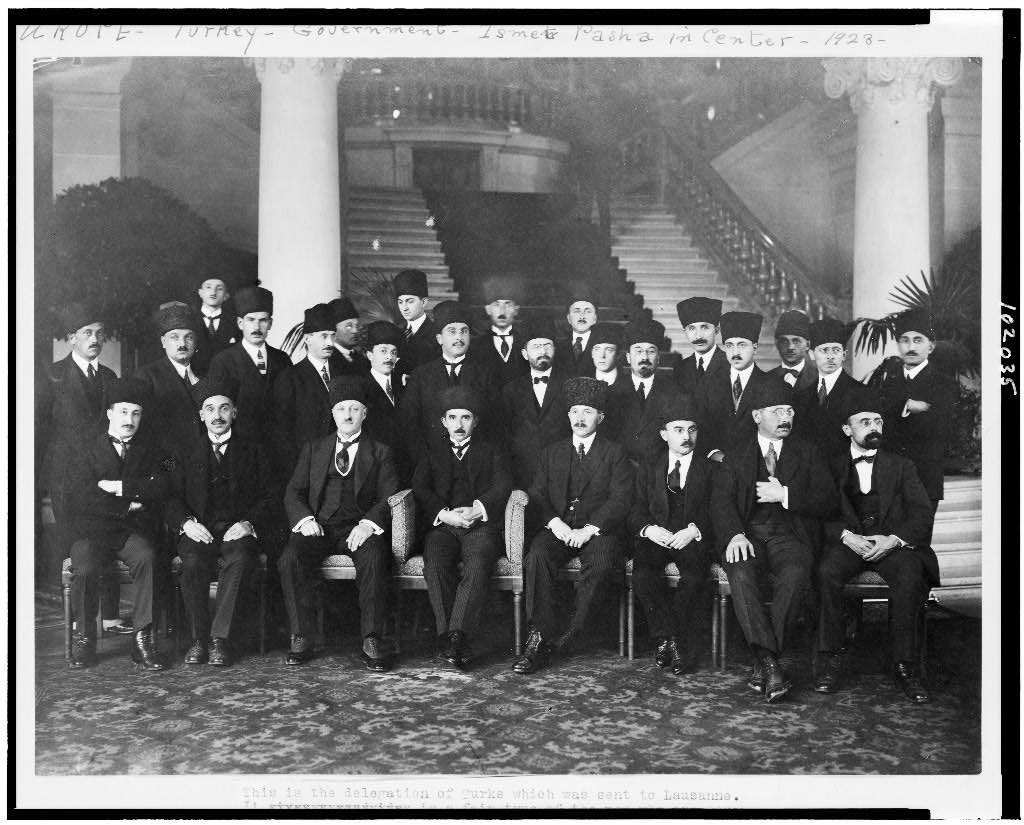 PEACE TREATY OF LAUSANNE AND THE END TO ARMENIAN ASPIRATIONS
PEACE TREATY OF LAUSANNE AND THE END TO ARMENIAN ASPIRATIONS
Teoman Ertuğrul TULUN 22.07.2016 -
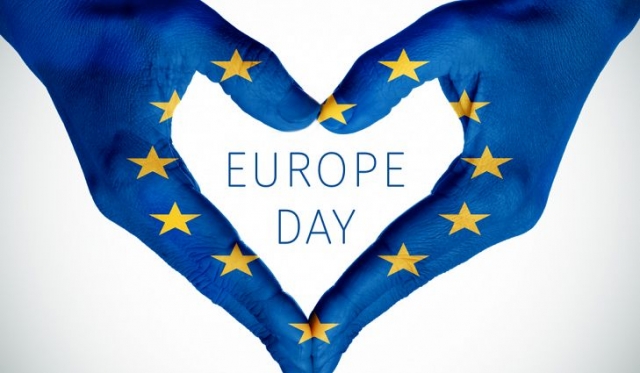 EUROPE DAY CELEBRATIONS - EU SYMBOLS AND TURKEY
EUROPE DAY CELEBRATIONS - EU SYMBOLS AND TURKEY
Teoman Ertuğrul TULUN 17.05.2019 -
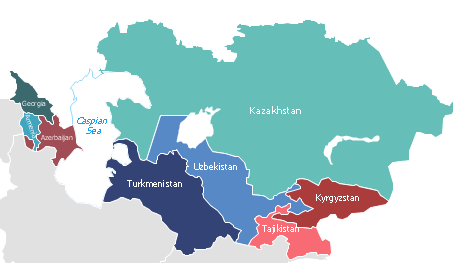 A QUARTER OF A CENTURY OF INDEPENDENCE OF CENTRAL ASIAN AND SOUTH CAUCASUS COUNTRIES: AN ECONOMIC SNAPSHOT AND PROSPECTS FOR THE FUTURE
A QUARTER OF A CENTURY OF INDEPENDENCE OF CENTRAL ASIAN AND SOUTH CAUCASUS COUNTRIES: AN ECONOMIC SNAPSHOT AND PROSPECTS FOR THE FUTURE
Teoman Ertuğrul TULUN 14.12.2016 -
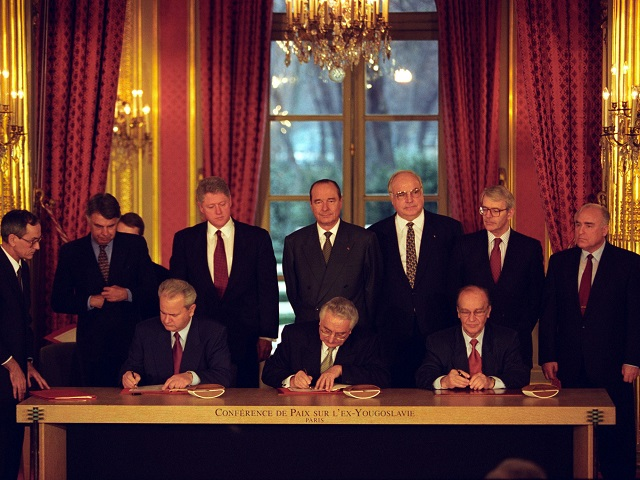 WHY SHOULD THE ROLE OF THE PEACE IMPLEMENTATION COUNCIL AND OHR CONTINUE IN BOSNIA AND HERZEGOVINA?
WHY SHOULD THE ROLE OF THE PEACE IMPLEMENTATION COUNCIL AND OHR CONTINUE IN BOSNIA AND HERZEGOVINA?
Teoman Ertuğrul TULUN 06.04.2021 -
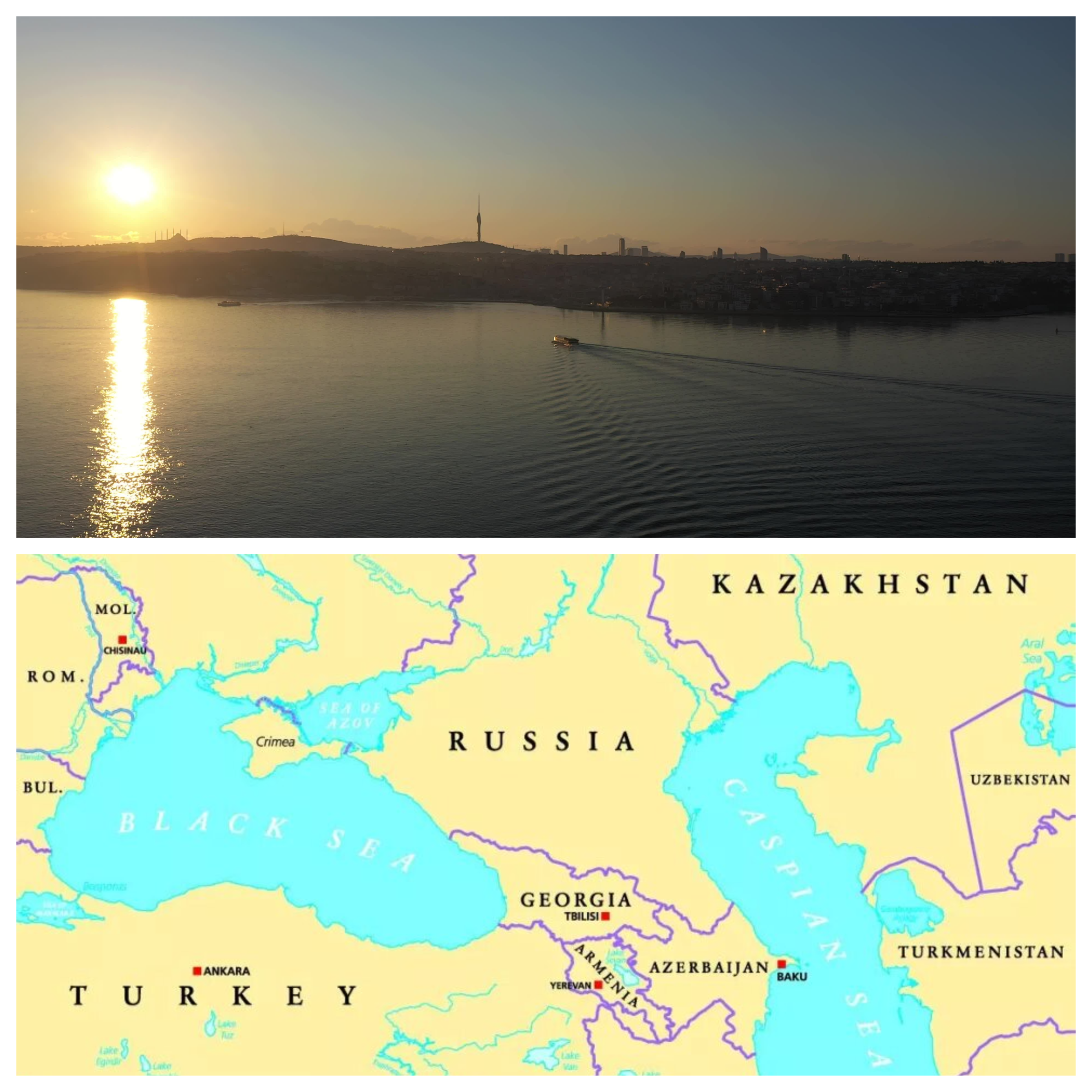 AT THE CROSSROADS: TÜRKİYE AND THE BATTLE FOR BLACK SEA ORDER
AT THE CROSSROADS: TÜRKİYE AND THE BATTLE FOR BLACK SEA ORDER
Teoman Ertuğrul TULUN 21.10.2025
-
 THE EVENTS OF 1915 AND THE WORD “DEPORTATION”
THE EVENTS OF 1915 AND THE WORD “DEPORTATION”
Mehmet Oğuzhan TULUN 08.02.2015 -
 BOOK REVIEW: AZERBAIJAN DIARY: A ROGUE REPORTER'S ADVENTURES IN AN OIL-RICH, WAR-TORN, POST-SOVIET REPUBLIC
BOOK REVIEW: AZERBAIJAN DIARY: A ROGUE REPORTER'S ADVENTURES IN AN OIL-RICH, WAR-TORN, POST-SOVIET REPUBLIC
Nigar SHİRALİZADE 20.07.2018 -
 GUARDIANSHIP OR EQUILIBRIUM? POWER, AND THE LEGACY OF ORDER IN THE BLACK SEA
GUARDIANSHIP OR EQUILIBRIUM? POWER, AND THE LEGACY OF ORDER IN THE BLACK SEA
Teoman Ertuğrul TULUN 02.09.2025 -
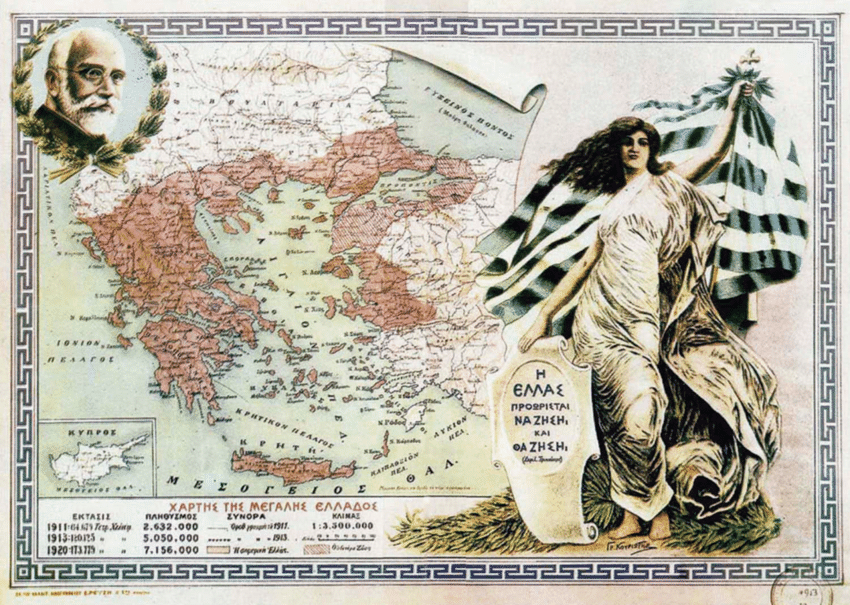 CONSEQUENCES OF MATERIAL BREACH OF THE LAUSANNE PEACE TREATY
CONSEQUENCES OF MATERIAL BREACH OF THE LAUSANNE PEACE TREATY
Teoman Ertuğrul TULUN 07.10.2020 -
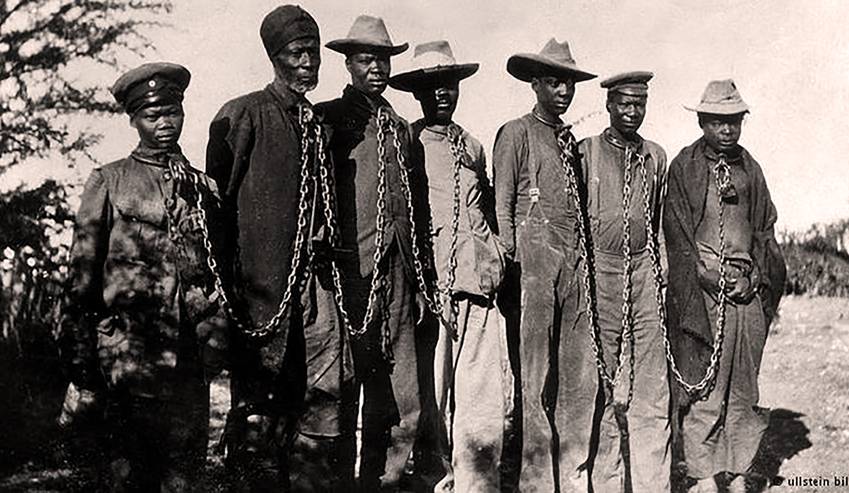 GENOCIDE AND GERMANY
GENOCIDE AND GERMANY
Mehmet Oğuzhan TULUN 10.01.2017
-
25.01.2016
THE ARMENIAN QUESTION - BASIC KNOWLEDGE AND DOCUMENTATION -
12.06.2024
THE TRUTH WILL OUT -
27.03.2023
RADİKAL ERMENİ UNSURLARCA GERÇEKLEŞTİRİLEN MEZALİMLER VE VANDALİZM -
17.03.2023
PATRIOTISM PERVERTED -
23.02.2023
MEN ARE LIKE THAT -
03.02.2023
BAKÜ-TİFLİS-CEYHAN BORU HATTININ YAŞANAN TARİHİ -
16.12.2022
INTERNATIONAL SCHOLARS ON THE EVENTS OF 1915 -
07.12.2022
FAKE PHOTOS AND THE ARMENIAN PROPAGANDA -
07.12.2022
ERMENİ PROPAGANDASI VE SAHTE RESİMLER -
01.01.2022
A Letter From Japan - Strategically Mum: The Silence of the Armenians -
01.01.2022
Japonya'dan Bir Mektup - Stratejik Suskunluk: Ermenilerin Sessizliği -
03.06.2020
Anastas Mikoyan: Confessions of an Armenian Bolshevik -
08.04.2020
Sovyet Sonrası Ukrayna’da Devlet, Toplum ve Siyaset - Değişen Dinamikler, Dönüşen Kimlikler -
12.06.2018
Ermeni Sorunuyla İlgili İngiliz Belgeleri (1912-1923) - British Documents on Armenian Question (1912-1923) -
02.12.2016
Turkish-Russian Academics: A Historical Study on the Caucasus -
01.07.2016
Gürcistan'daki Müslüman Topluluklar: Azınlık Hakları, Kimlik, Siyaset -
10.03.2016
Armenian Diaspora: Diaspora, State and the Imagination of the Republic of Armenia -
24.01.2016
ERMENİ SORUNU - TEMEL BİLGİ VE BELGELER (2. BASKI)
-
AVİM Conference Hall 24.01.2023
CONFERENCE TITLED “HUNGARY’S PERSPECTIVES ON THE TURKIC WORLD"









